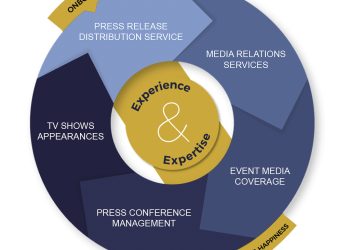Found in 1817 as a metal petalite by the Swedish physicist Johann August Arfvedson, lithium (Li) today is essentially connected with customer hardware and electric vehicles (EVs). Lithium-particle batteries are vigorously depended upon to control cell phones, workstations, and other convenient devices, as well as help energy capacity and delivery in EVs. The lithium market growth for this component is developing quickly, with Fortune Business Insights™ assessing that the worldwide lithium market size will arrive at USD 6.62 billion by 2028, showing a CAGR of 8.1%.
Expanding Adoption of EVs: A Bright Future for Lithium
The steadily expanding vehicular contamination levels overall have made a pressing need to accelerate the advancement of EV innovations and grow the reception of battery-driven vehicles. Luckily, these patterns are as of now moving in many regions of the planet. As per the International Energy Agency (IEA), electric vehicle deals remained at 2.1 million out of 2019, surpassing 2018 and supporting the worldwide EV stock to 7.2%. Besides, electric vehicles likewise held a 2.6% offer in the worldwide vehicle deals, making 2019 a mother lode year for the EV business. Since EVs, whether crossover or unadulterated, broadly use Li batteries for power, the flourishing interest for EVs brings uplifting news for lithium organizations.
Light Demand for Li-Ion Batteries in the midst of COVID-19 Pandemic
The abrupt emission of the COVID-19 pandemic has prompted devastating ramifications for a few businesses. For components, for example, lithium, the shocks were seen as production network disturbances and sharp compressions in assembling exercises because of lockdown and social removing measures. Nonetheless, in spite of these unsettling influences, the interest for Li batteries has stayed versatile because of two significant variables: the proceeded with development and improvement of the EV business and the fuse of lithium-based batteries in compact clinical gadgets. On account of EVs, solid electric vehicle deals in the midst of the pandemic ended up being the main splendid spot for the car business. For instance, according to IEA information, in 2020, the portion of electric vehicles in absolute deals in Europe was 10%, while in China it was 5%. Likewise, in the US, where the vehicle market had contracted decisively, electric vehicle deals were 4% higher than 2019 levels, showing a predictable expansion in revenue in EVs in the country.
Then again, the elevated requirement for clinical gadgets to fight the pandemic has initiated privately owned businesses to arm fundamental medical services gear with solid battery arrangements. In June 2020, for example, the Israel-based shrewd battery engineer, Epsilor Electric Fuel, provided huge number of battery-powered Li-Ion batteries to an Israel-based maker of programmed ventilation machines to battle the Covid pandemic in the country. Also, in July 2020, the startup PURE EV gave lithium batteries to medical services innovation organizations across India to help the conflict against the pandemic. These improvements have, kept the reception of Li batteries light in the midst of the ongoing emergency.
The business capability of lithium batteries and related innovations is tremendous and a couple of organizations are gaining consistent ground in this industry. A concise glance at probably the latest improvements can reveal more insight into these methodologies.
Albemarle Bolsters Li Production at Nevada Site
In January 2021, Albemarle Corporation reported that it will grow and reinforcing lithium creation at its office in Silver Peak, Nevada, in a bid to enhance the local store network of the component for North American EV makers. Under its development plan, Albemarle will start surveying dirts and different assets in Nevada to popularize the creation and conveyance of lithium in the country.
Albemarle has additionally been at the very front of Li exploration in North America. In September 2020, for instance, the organization was chosen by the US Department of Energy as a basic accomplice for two energy research projects. The principal project, in organization with Argonne National Laboratory, will include the improvement of an innovation to move straightforwardly from lithium chloride to lithium hydroxide. The subsequent task, directed in a joint effort with Pacific Northwest National Laboratory, focuses on optimizing the commercialization of high-energy cathodes for expanded battery duration in EVs.
Avalon and Rock Tech Join Forces to Develop Lithium Process Facility
Avalon Advanced Materials and Rock Tech inked a Letter of Intent (LOI) in November 2020 to collaborate for the improvement of a handling office for li-particle batteries in Thunder Bay, Ontario. The new office will be organized to handle Li mineral concentrates extricated from Rock Tech’s Georgia Lake and Avalon’s Separation Rapids lithium projects. The aim behind the setting up of this clever handling unit is to create Li sulfate, a trailblazer compound for Li-Ion-based batteries. Through this endeavor, the two organizations target laying out an early presence in the blossoming mining area in Northern Ontario, which is quickly arising as a significant center point of battery materials, including manganese, graphite, nickel, and cobalt in Lithium market.
Tesla Files Patent for Breakthrough Li-Ion Battery Technology
Along with Canada’s Dalhousie University, Tesla recorded a patent on December 26, 2019, for a leading edge Li-Ion battery innovation that vows to exceed the presentation right now conveyed by existing Li-Ion batteries in EVs and energy stockpiling applications. The patent is a critical stage in Tesla’s 1 million-mile battery desire, under which the EV producer looks to foster armadas of robo-taxis and long stretch trucks with expanded reaches and lifetimes of the ongoing Li-Ion batteries. With its creative battery arrangement, Tesla expects to reform the EV and lithium ventures in a solitary stroke, guiding another time of feasible versatility.
Are Reversible Lithium Batteries the Future?
The mounting interest for practical energy age has pushed researchers to lead investigation into innovations that can expand the maintainability remainder of flow battery arrangements. A couple of scholastic establishments are participated in growing such advances and further exploring the capacities of lithium related to different components. Carbon dioxide has arisen as one such component, which has prompted the plan of lithium-carbon dioxide batteries, working with a way breaking implies for catching CO2. In October 2019, for example, researchers at the University of Illinois at Chicago declared the improvement of a Li-CO2 battery that is completely battery-powered and stays stable north of 500 cycles. Essentially, in August 2020, the University of Surrey in the UK started work on another Li-particle battery innovation that is being designed to catch CO2 discharges. The examination will be led by the University following an honor from the Engineering and Physical Sciences Research Council (EPSRC). The reversible, carbon-catching capacities of lithium-carbon dioxide are breaking the current wildernesses of battery innovation and hold untold opportunities for the eventual fate of the perfect energy scene.















